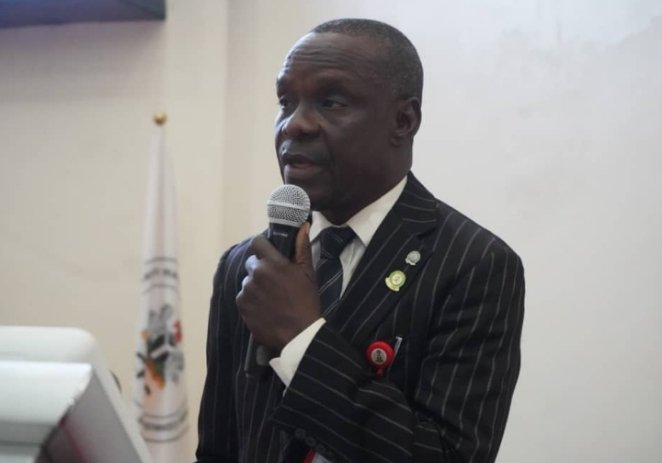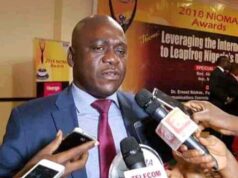
Chairman of the Independent Corrupt Practices and other Related Offences Commission (ICPC), Professor Bolaji Olufunmileyi Owasanoye (SAN), has painted a picture of how the annual negative report by the Transparency International (TI) on corruption status of Africa countries, especially, Nigeria has simmered down without the Commission being confrontational.
He said: “some of you must have noticed that this year, TI’s (Transparency International) release did not have much grounding or impact. This is not a Nigerian phenomenon. A lot of developing and European countries are beginning to interrogate TI reports as to why the countries that are victims of corruption always run poorer than the countries that are the recipients of the proceeds of corruption.”
Professor Owasanoye spoke yesterday, June 19, at the opening of a two-day training which ICPC organised to equip journalists from no fewer than 50 different media outlets across the country, with necessary wherewithal for the reportage of the Commission’s anti-corruption crusade.
 He said that the training is a device to enable Nigeria to have the capacity to tell it’s story the way it should be, as counter narrative to the one being presented by the Transparency International to the world.
He said that the training is a device to enable Nigeria to have the capacity to tell it’s story the way it should be, as counter narrative to the one being presented by the Transparency International to the world.
He emphasized that the training is borne out of the need to balance the narrative which the Transparency International always come up with about Nigeria, adding that the body had been in the habit of presenting gloomy picture of corruption status of the country without taking into account, the nature of the country as a developing nation.
“TI used a strategy to complicate its report. We needed a strategy to respond.
“For those of us who have a duty to report, like you (Journalists), you are always under the pressure to report the news as it is.
The ICPC boss admitted that Nigeria as a developing country, has its own challenges, regretting that when there are prospects to make progress, there are frustrations mounted that are not visible to observers.
“It is therefore time for us to begin to get involved in the narrative, at least to present our own side of the story the way it ought to be presented, so that there would be a balance in the information exchange.”
Professor Owasanoye insisted that the legal framework under which ICPC was established did not allow it to embark on media trial of suspected corrupt public officers, appealing to media men therefore, to bear with them if they fail to publicize suspect before investigation is concluded.
He explained that the Commission is not permitted by law, to go public with matters that are under investigations, until they go for prosecutions.
 Lectures were delivered by some Directors in the Commission. They are Muhammed Ashiru Baba, who spoke on ICPC Initiatives: sexual harassment, moral reorientation and others; Professor Elijah Okebukola on Measuring Progress in the Fight against Corruption; Ebenezer Shogunle on Understanding the Process of Prosecution of Corrupt Cases and Terminologies and Jude Okoye on Overview of ICPC Achievements (2019 – 2023).
Lectures were delivered by some Directors in the Commission. They are Muhammed Ashiru Baba, who spoke on ICPC Initiatives: sexual harassment, moral reorientation and others; Professor Elijah Okebukola on Measuring Progress in the Fight against Corruption; Ebenezer Shogunle on Understanding the Process of Prosecution of Corrupt Cases and Terminologies and Jude Okoye on Overview of ICPC Achievements (2019 – 2023).
 The training continues and ends today, June 20 at the ICPC Headquarters in Abuja.
The training continues and ends today, June 20 at the ICPC Headquarters in Abuja.






